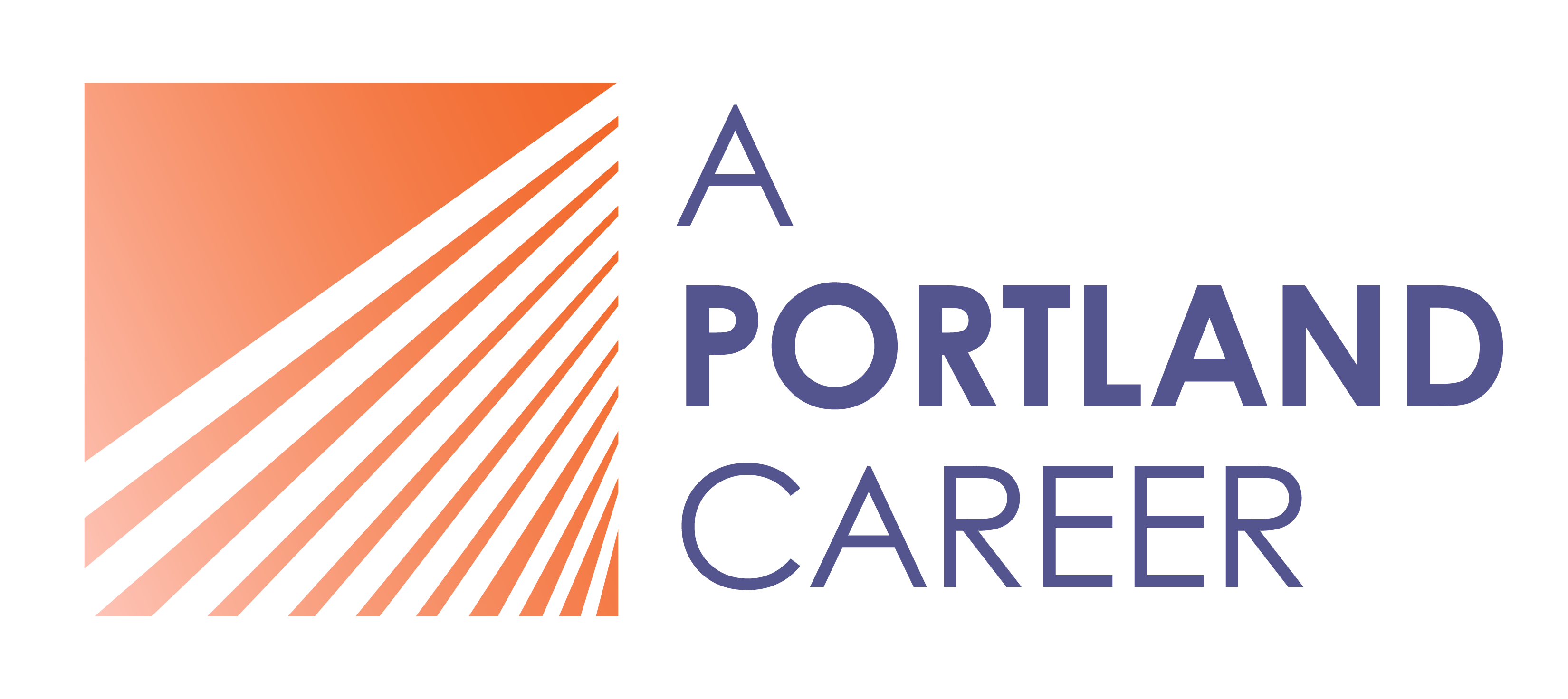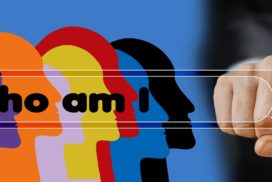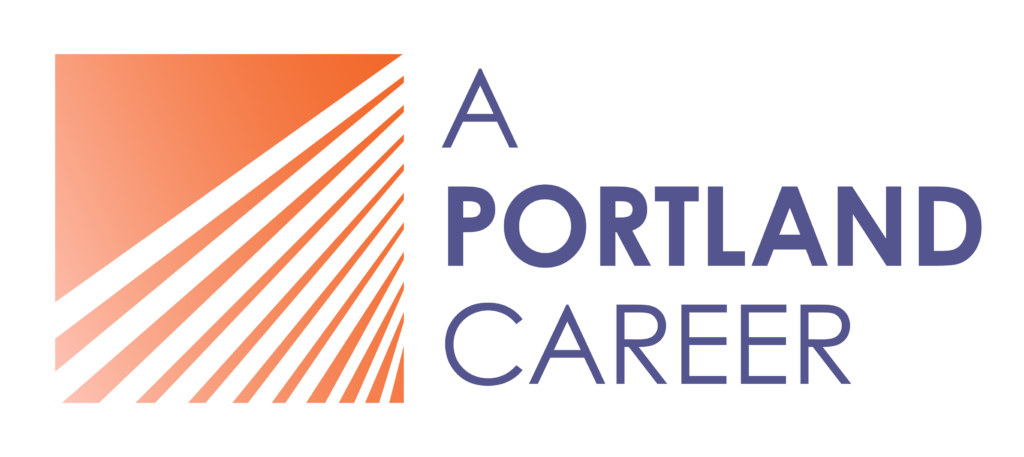Find out your MBTI personality type with our Myers-Briggs career assessment, and learn what it means (or doesn’t mean) about your career preferences!
The Holland Code is arguably the most practical personality typology for job search. Crack the Code, and unlock your best career path matches.
Crack The Holland Code and Unlock Your Career Aspirations
By A Portland Career, and edited by Suzie Sherman
Want to find your best career match? We can give you a detailed career assessment and help you navigate your search
Behind the Scenes with A Portland Career
We’ve noticed that a few of our blog posts about career exploration really resonate with you! We decided to take a look back and add some fresh perspectives on these favorite posts. Watch the video of our chat, flip through the slides for the take-homes, and then read on to take a deeper dive. We hope you enjoy these candid conversations with A Portland Career!
Behind the Scenes: The Holland Code
Dan & Suzie chat all things RIASEC
Join Career Expert Dan Hahn and Content Strategist Suzie Sherman as they chat about The Holland Occupational Codes, also known as the RIASEC codes or typologies.
Dan shares his favorite tips for using the Holland Code to get the most useful results for your career search and generate creative conversations with the people who know you best.
Press play, or flip through the slides below for the highlights!
The themes (Realistic, Investigative, Artistic, Social, Enterprising, and Conventional) make up some of the best occupational codes predicting career satisfaction. These codes inform excellent commercial and government career assessment tools that are available free to everyone online.
The Holland Code is great for inspiring your career research. Once you’ve done some honest assessment of your values and preferences, you can then use a tool like this to generate additional ideas that can get you thinking creatively about the range of real-world career options that line up with those preferences!
It's really important to remember that this is one small tool in a whole huge tool box that can help you in your process of honest self-reflection and developing insight into your preferences and what you care most about. It's a tool to get your creative energy flowing!
In this article, we use the O*NET Browse By Interests page to help you apply your Holland Code assessment to your career exploration. Click the link below, and keep that page handy as you read on!
You can enlist the help of career coaches like us, but it doesn't have to be us, either! Talk to people who know you very well: friends, colleagues, and family will have important insight about you, and can help you get outside of your own head!
After you take the assessment, check out lists of job titles at O*NET Online. Then bring the job role options that you're curious about into conversation with these other trusted people. > > >
Friends and family can remind you about things you might be good at that you hadn’t considered. If you just use this tool solo, you might miss things that you would actually be really great at and fit you well!
On the flip side, your confidantes can help you eliminate some options you may be considering, because they know you a little bit better than you know yourself sometimes! 😅
Sometimes, when you add in all three letters for your top three scores, you’ll get too few options. Maybe some of them will speak to you, but it might also be frustrating and stifle some of your creative thought process.
If you take the time to consider these options, and discuss them with people who know you well, you’ll get some really valuable insight, and start to see more helpful patterns in the job roles that you can explore!

The Big Five personality traits and the Myers Briggs Type Indicator can offer insight into our personalities and the kinds of careers for which we are best-suited. But there’s no personality typology that is quite as practical and directly applicable to job search as the Holland Code. Find your Holland Code, and unlock the best career paths that match your strengths and interests.
Sociology professor and psychologist John L. Holland, PhD, was a thought leader in understanding career and personality, and published his theory of careers he called the “occupational themes” starting in the 1950s. He realized that the types of work people gravitate to can often reveal corresponding character traits that help us better understand the kinds of careers where we can flourish. Occupational statistics sites like O*NET use Holland codes to help job seekers with career research, so let’s help you get to know this powerful tool!
Home → Helpful Articles → Career Exploration → Crack The Holland Code and Unlock Your Career Aspirations
We think the most effective career exploration starts with knowing yourself, identifying your passions, and utilizing the best career search tools available. Here are some great posts to help you get started:
- The Big 5 Personality Traits: Get to Know Yourself to Find a Better Career Path
- What Does Your MBTI Personality Type Actually Mean for Your Career?
- Getting Clear on Your Career Path: Discerning Your Interests and Passions
- Your Career Values Assessment
- Taking Your Skills Inventory: Self-Assessment Time
- The 6 Best Career Exploration Websites to Narrow Down your Job Search
- 7 Expert-Backed Research Tips to Find the Right Career
If you want more guidance, get in touch, and we’ll help you explore your strengths, interests, and passions to find a great career match for you.
On This Page
The Holland Code occupational themes
Holland’s theory encompasses six occupational themes organized by first letter: Realistic, Investigative, Artistic, Social, Enterprising, and Conventional (R-I-A-S-E-C, or simply RIASEC). Combining all six letters in different ranked orders generates up to 720 personality patterns. These patterns (or “Holland Codes” as they are commonly called) could be as simple as “IA” or as complex as “IARCSE.” They apply to both personal characteristics and preference for work environment, elucidating the kinds of work activities that people might enjoy and excel at.
Here is a snapshot of each of the Holland Code’s six occupational themes, or the six types. (We will discuss getting a more in-depth interpretation of your occupational themes below.)
Read through them, and then rank each theme in order from 1 to 6, according to which describes the activities you would find most attractive, interesting, and satisfying in your future job or career. Pay attention, especially, to your top three themes.
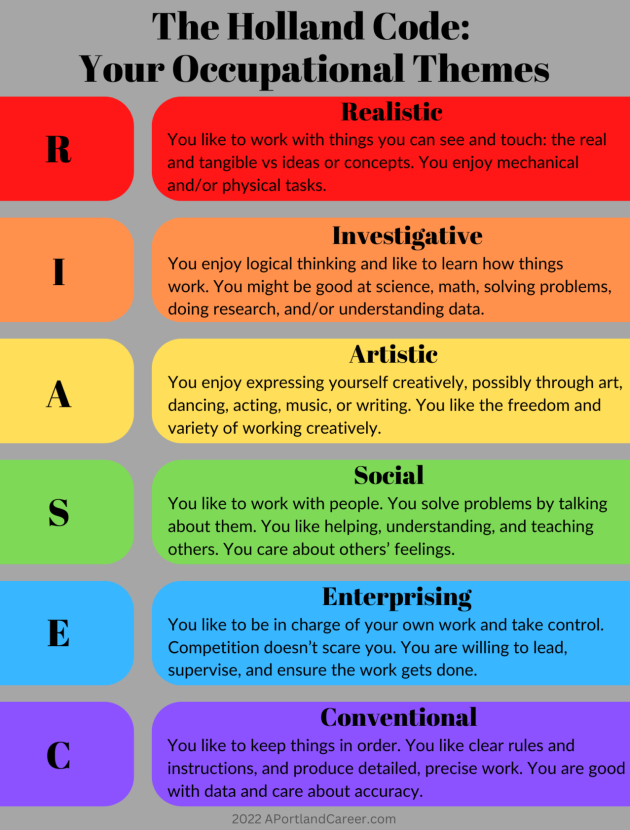
Your top three choices of occupational theme make up a 3-letter code (for example, AIE = Artistic, Investigative, and Enterprising.) Now, visit O*NET Online, and browse their exhaustive list of occupations sorted by these three-letter codes. O*NET calls these codes your “interest areas.” O*NET is one of the best sources for up-to-the-minute occupational data available.
For each occupation, O*NET lists the work activities, education level, technical competencies, knowledge and skill sets, median salaries, and predicted employment outlook. Note that the order of the three letters is interchangeable in the O*NET database.
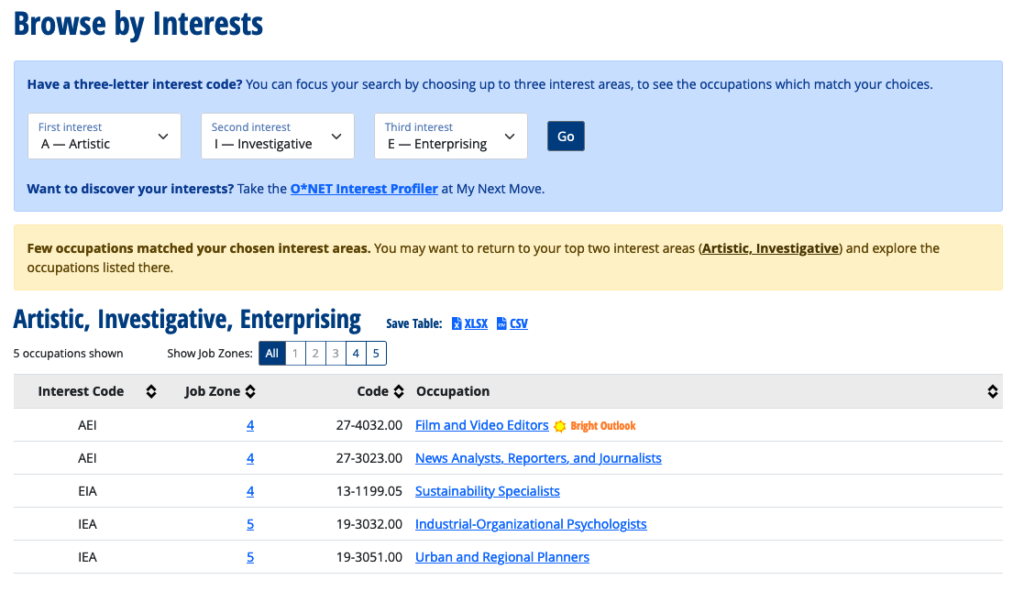
Broaden your search: If you aren’t finding careers or job titles at O*NET that speak to you using your 3-letter code, you can also try just entering your top two choices. This will broaden your search. “Computer programmer” is a job title that comes up with just the 2-letter code “IC” – most people with this aptitude or interest are definitely the investigative and conventional type (logical thinking, problem-solving, detail-oriented) but plenty of engineers we know are also artistic, enterprising, etc.
Holland Code combinations to get you thinking
Here are just a few great examples of career choices according to the Holland Code and O*Net. Think about your top three letters, and let these samples help you generate some ideas as you explore potential career paths. Remember: for a broader search, just use your top two!
R I A: Realistic, Investigative, Artistic
Patternmakers, musical instrument repairers, landscape artists, archeologists
R I S: Realistic, Investigative, Social
Veterinary assistants, medical equipment technicians, acute care nurses
R S C: Realistic, Social, Conventional
Restaurant workers, personal care aides, animal control workers, medical assistants
R E C: Realistic, Enterprising, Conventional
Correctional officers, baristas, security guards, motorboat operators
I A S: Investigative, Artistic, Social
Mental health counselors and therapists, social workers, speech-language pathologists, humanities professors
I A E: Investigative, Artistic, Enterprising
Film and video editors, news analysts and reporters, sustainability specialists, urban planners, creative writers
I A C: Investigative, Artistic, Conventional
Tech writers, mathematicians, desktop publishers
I S E: Investigative, Social, Enterprising
Community health workers, law professors, instructional coordinators, business professors
I S C: Investigative, Social, Conventional
Registered nurses, pharmacists, computer science and library science teachers
I E C: Investigative, Enterprising, Conventional
Paralegals, business intelligence analysts, actuaries, logistics analysts, computer programmers (especially startup entrepreneurs)
A S E: Artistic, Social, Enterprising
Nannies or au pairs, hairdressers and cosmetologists, choreographers, musicians, PR specialists, broadcast hosts
A S C: Artistic, Social, Conventional
Middle and elementary school teachers, training and development specialists
A E C: Artistic, Enterprising, Conventional
Editors, advertising managers, fundraisers, media directors
S E C: Social, Enterprising, Conventional
Customer service reps, waitstaff in restaurants, flight attendants, hospitality workers, real estate agents
R S E: Realistic, Social, Enterprising
Passenger attendants, manicurists, coaches and scouts, exercise trainers
R A C: Realistic, Artistic, Conventional
Glass art specialists, tile and stone setters, shoe and leather workers, private chefs
R A E: Realistic, Artistic, Enterprising
Fashion designers, tailors and custom sewers, models, chefs and executive chefs, graphic designers
R A S: Realistic, Artistic, Social
Park naturalists, tree trimmer, sound engineer technician, recreation therapist
R I C: Realistic, Investigative, Conventional
Drillers and oil derrick workers, iron and steel workers, computer hardware engineers, audio and video technicians
R I E: Realistic, Investigative, Enterprising
Fishing and hunting workers, commercial pilots, foresters, wind energy engineers

Explore deeper for a great career match
To go deeper with a Holland Code assessment, we encourage you to work with a career coach who administers and interprets the Strong Interest Inventory. This inventory generates an extensive report which provides a vast array of useful information:
- It helps you rank your themes in greater detail, and assigns you a complete six-letter Holland Code.
- It generates an exhaustive list of possible careers for you to consider by comparing your answers to the responses of people who love their work!
- It provides an overview of occupational themes and career clusters that may interest you.
- Finally, it lists a series of probing questions and “Action Steps” to encourage you to explore occupational themes and job titles in more depth.
The website www.123test.com offers a variety of career assessments for free, and provides fairly detailed reports. If you click on the “Career Test” under “Tests” from the home page, a quiz of visual prompts generates a quick assessment of your Holland Code. The test provides some insight, but the Strong Interest Inventory is going to provide your most accurate Holland Code and list job titles in descending order of interest organized under each category. It’s an invaluable resource for career development.
If you’re ready to deepen your career exploration, schedule a call with us.

Applying the occupational themes to your life and career
Our core personality traits intersect with our professional and creative interests in powerful ways that can change and develop over time. As you think about the occupational themes that stand out for you, consider how they interact with, or complement, your Myers-Briggs personality type. An ENFP “campaigner” on the Myers-Briggs typology who is Social, Artistic and Enterprising (SAE Holland Code) is going to be markedly different from an ENFP who is Realistic, Conventional, and Investigative (RCI). The former will be drawn to creative, entrepreneurial, and social pursuits, while the latter will likely find fulfillment applying their influencer and idea-generation skills in a more conventional, hands-on workplace—ideally with complex problems to solve.
Helpful ways to think about the occupational themes
Dr. John Holland’s formulation of the RIASEC occupational themes included a general “type” corresponding to each letter, a sort of coda to make the themes more concrete. If you’re having trouble identifying which occupational themes feel truest for you, you can think about them in these more practical terms:
- Realistic people are Doers – you’ve got physical skills, you like working with your hands, digging in the dirt, and getting sh*t done!
- Investigative people are Thinkers – you enjoy research, analyzing, and problem-solving.
- Artistic people are Creators – musicians, artists, makers, creatives, driven by self-expression.
- Social people are Helpers – do you like collaborating with colleagues, working with clients, being sociable, and helping people?
- Enterprising people are Persuaders – you’re self-confident, disciplined, a natural leader, an influencer. Perhaps you’d like to start your own business…
- Conventional people are Organizers – you don’t have to be “conventional,” in the boring way, to be detail-oriented, meticulous, and excellent at documentation.
An extra resource for Artistic people
If Artistic is your dominant theme in the Holland code, check out Carol Eikleberry’s book, Career Guide for Creative and Unconventional People. She points out the challenges inherent in making a living for those of us with Artistic as a core theme. She writes,
“The intuitive preference for what could be, rather than what is, helps produce some negative feelings. Creative people often focus on what is wrong, what is missing, what needs to be changed to make something better.”
This tendency to strain against the leash of society means creative people might need a more unique approach than a database like O*NET can provide. Eikleberry’s book presents an invaluable “Career Reference Section” that fleshes out “281 Occupations for Creative and Unconventional People.” We recommend anyone with an “A” in their code read this book and spend time deeply considering some of these career paths.
Final thoughts on using the Holland Code for career search
Your Holland Code is the most directly relevant personality typology for career exploration. Once you’ve done a self-assessment to find your Holland Code, or deployed a career expert to help you form a detailed profile, you can attack the O*NET database with confidence, knowing you will generate plenty of real-world ideas about the best career path matches for your personality and aptitudes. As with all personality typologies, go with your gut and have fun with it. The process is bound to spark creative thinking and give you more information about the kinds of work out there for you that promise the most growth potential and job satisfaction.
Key takeaways
- The Holland Code is named after psychologist and sociology professor John L. Holland, who invented the typology in the 1950s.
- The code includes six different occupational themes that can elucidate the best career paths for your personality type and the kinds of work you might enjoy.
- Your top three occupational themes form a shortened code that can point you to hundreds of career path matches.
- The occupational database O*NET organizes careers into interest areas based on these three-letter Holland Codes, so job seekers and career explorers can find career paths that match their interests and aptitudes.
- The Holland Code is compatible with other personality typologies, like the Big 5 Personality traits and the Myers-Briggs Type Indicator. Finding your Holland Code can add depth and a practical edge to your self-assessment process.
Related articles you might be interested in:
Your Career Values Assessment
So often, our careers seem to be at odds with our core values. This career values exercise gives you permission to think outside the cubicle and find work you...
The 6 Best Career Exploration Websites to Narrow Down your Job Search
Discover the 6 Best Career Exploration Websites to find job titles, requirements, salary range, and market outlook for the most promising career paths!
7 Expert-Backed Research Tips to Find the Right Career
Here’s 7 of our best tips to take your career exploration from brainstorm to organized search. Narrow down job titles, tap your network, and find the right research tools!
